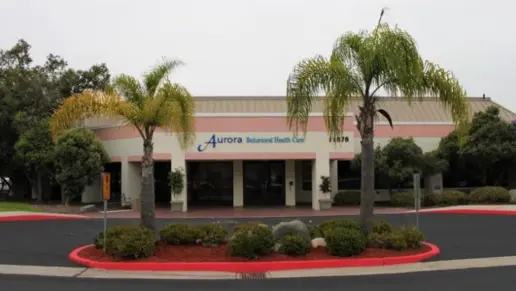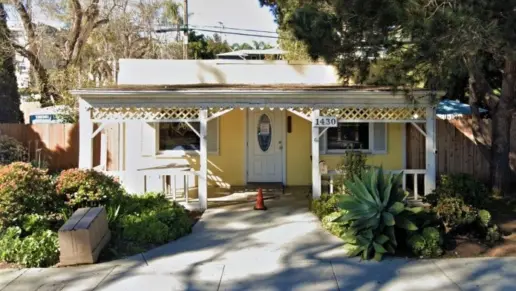About Safe Harbor Treatment Center for Women – Bernard Street
Safe Harbor Treatment Center for Women – Bernard Street is a private drug and alcohol addiction treatment facility based in Costa Mesa, California. They treat substance abuse and underlying issues with a combination of traditional and holistic methods. They serve adult women.
Safe Harbor utilizes methods that help clients recover through rediscovery of self worth. The program promotes unconditional love as an essential cornerstone of recovery. Services include detox, residential treatment, and dual diagnosis/co-occurring disorder treatment.
Detox is often the first step in recovery. Safe Harbor Treatment Center for Women uses medically managed detox, which combines therapy and medication, to help clients safely manage withdrawal symptoms. Clients reside at the facility during this time.
While participating in residential treatment, clients stay in homelike residences. Staff are present to support and supervise clients while enforcing rules. The residence is shared by multiple clients.
During treatment, clients follow a structured schedule of recovery and social events. The core of these are therapy and education groups, which seek to help clients better understand their addiction and triggers while teaching them effective coping skills.
Any behavioral health diagnosis (such as anxiety or bipolar disorder) that exists alongside substance abuse is known as a co-occurring disorder. Specialized co-occurring disorder treatment addresses the symptoms of both problems to make clients more receptive to treatment while reducing the risk of relapse.
Safe Harbor Treatment Center for Women accepts most major forms of insurance. However, because in network and out of network benefits can vary, clients are encouraged to confirm coverage before enrolling in a program.
Facility Overview
Rehab Score
Gallery
Accepted Insurance




Other Forms of Payment
Private insurance refers to any kind of healthcare coverage that isn't from the state or federal government. This includes individual and family plans offered by an employer or purchased from the Insurance Marketplace. Every plan will have different requirements and out of pocket costs so be sure to get the full details before you start treatment.
Self-pay involves paying for treatment out of your own pocket. You can use savings or credit, get a personal loan, or receive help from family and friends to fund your treatment. If you don't have insurance or your insurance plan doesn't cover a specific program, self-pay can help ensure you still get the care you need.
Financial aid can take many forms. Centers may have grants or scholarships available to clients who meet eligibility requirements. Programs that receive SAMHSA grants may have financial aid available for those who need treatment as well. Grants and scholarships can help you pai for treatment without having to repay.
Addiction Treatments
Levels of Care
Treatments
The goal of treatment for alcoholism is abstinence. Those with poor social support, poor motivation, or psychiatric disorders tend to relapse within a few years of treatment. For these people, success is measured by longer periods of abstinence, reduced use of alcohol, better health, and improved social functioning. Recovery and Maintenance are usually based on 12 step programs and AA meetings.
Drug rehab in California teaches participants constructive ways to stay clean and sober. Treatment revolves around helping individuals stop using the substance they are addicted to and learn healthy habits to avoid relapse.
Many of those suffering from addiction also suffer from mental or emotional illnesses like schizophrenia, bipolar disorder, depression, or anxiety disorders. Rehab and other substance abuse facilities treating those with a dual diagnosis or co-occurring disorder administer psychiatric treatment to address the person's mental health issue in addition to drug and alcohol rehabilitation.
A combined mental health and substance abuse rehab has the staff and resources available to handle individuals with both mental health and substance abuse issues. It can be challenging to determine where a specific symptom stems from (a mental health issue or an issue related to substance abuse), so mental health and substance abuse professionals are helpful in detangling symptoms and keeping treatment on track.
Opioid rehabs specialize in supporting those recovering from opioid addiction. They treat those suffering from addiction to illegal opioids like heroin, as well as prescription drugs like oxycodone. These centers typically combine both physical as well as mental and emotional support to help stop addiction. Physical support often includes medical detox and subsequent medical support (including medication), and mental support includes in-depth therapy to address the underlying causes of addiction.
Programs


Clinical Services
Creativity is inherently healing, and can help those in recovery express thoughts or feelings they might not otherwise be able to. Creative arts therapy can include music, poetry/writing, painting, sculpting, dance, theater, sandplay, and more. Unlike traditional art, the final product matters far less than the experience of creation and expression itself.
DBT combines standard cognitive-behavioral techniques for emotion regulation and Reality-testing with concepts of distress tolerance, acceptance, and mindful-awareness. DBT Skills Training teaching provides clients with the “how” skills to deal with issues including emotionally reactive behaviors, the inability to express feelings and self-calm, and stress. The DBT Groups at Safe Harbor are designed to equip women with the skills and knowledge to manage their emotions while participating in everyday life.
Eating disorders include anorexia, bulimia, binge eating, and dysfunctional eating patterns. Many psychologists and other mental health professionals consider eating disorders to be food addictions, meaning food is being used in an addictive way (similar to drug or alcohol addiction). Certain substance abuse treatment programs will have treatment for eating disorders as one of the services offered. An eating disorder may also present as a co-occuring disorder or dual diagnosis alongside drug and alcohol addiction.
Experiential therapy is a form of therapy in which clients are encouraged to surface and work through subconscious issues by engaging in real-time experiences. Experiential therapy departs from traditional talk therapy by involving the body, and having clients engage in activities, movements, and physical and emotional expression. This can involve role-play or using props (which can include other people). Experiential therapy can help people process trauma, memories, and emotion quickly, deeply, and in a lasting fashion, leading to substantial and impactful healing.
EMDR is a therapeutic modality originally developed to help process trauma. In an EMDR session, a patient is prompted to undergo eye movements that mimic those of REM sleep. This is accomplished by watching a therapist's finger move back and forth across, or following a bar of light. The goal is repetitive sets of eye movements that help the brain reprocess memory, which can significantly reduce the intensity of remembered traumatic incidents. Associated memories can heal simultaneously, leaving patients significantly calmer, more stable, and more emotionally relaxed.
Group therapy is any therapeutic work that happens in a group (not one-on-one). There are a number of different group therapy modalities, including support groups, experiential therapy, psycho-education, and more. Group therapy involves treatment as well as processing interaction between group members.
Hypnotherapy uses deep relaxation, motivation and concentration to organically create subconscious changes in thought patterns. Guided Imagery is frequently used in this group, depending on the needs of the community at that time. It is common for women who are recovering from an addiction to experience distressing feelings such as panic attacks, jealousy, anger, guilt, anxiety and inadequacy. Hypnotherapy is an approachable, proven option to help women heal from these negative thoughts or behaviors.
In individual therapy, a patient meets one-on-one with a trained psychologist or counselor. Therapy is a pivotal part of effective substance abuse treatment, as it often covers root causes of addiction, including challenges faced by the patient in their social, family, and work/school life.
Life skills trainings involve all the skills a person must have in order to function successfully in the world. These include time management, career guidance, money management, and effective communication. Truly successful addiction recovery is based on the ability to not only live substance-free, but to thrive. Life skills teaches the practical necessities of functioning in society, which sets clients up for success in life, and therefore sobriety.
Nutrition therapy, aka medical nutrition therapy (MNT), is a way of treating physical, emotional, and medical conditions through diet. Specific dietary plans are designed by professional nutritionists or registered dietitians, and patients follow them in order to positively affect their physical and mental health. In this group at Safe Harbor Treatment Center for Women - Bernard Street, women will be educated about healthy eating habits, which include meal planning, purchasing and cooking healthy snacks and meals. Nutrition Group provides both academic and practical nutritional education for our women. This motivates them to want to make the dietary and, often, lifestyle changes that are necessary to ensure a healthy recovery.
Trauma therapy addresses traumatic incidents from a client's past that are likely affecting their present-day experience. Trauma is often one of the primary triggers and potential causes of addiction, and can stem from child sexual abuse, domestic violence, having a parent with a mental illness, losing one or both parents at a young age, teenage or adult sexual assault, or any number of other factors. The purpose of trauma therapy is to allow a patient to process trauma and move through and past it, with the help of trained and compassionate mental health professionals.
Amenities
-
Residential Setting
-
Private Setting
-
Private Rooms
Staff & Accreditations
Staff
Founder & Owner
Director of Admissions
Medical Director
CBT Primary Therapist
Accreditations

The Joint Commission, formerly known as JCAHO, is a nonprofit organization that accredits rehab organizations and programs. Founded in 1951, the Joint Commision's mission is to improve the quality of patient care and demonstrating the quality of patient care.
Joint Commission Accreditation: Yes
Accreditation Number: 600791

State Licenses are permits issued by government agencies that allow rehab organizations to conduct business legally within a certain geographical area. Typically, the kind of program a rehab facility offers, along with its physical location, determines which licenses are required to operate legally.
State License: California
License Number: 300154AP
Contact Information
546 Bernard St.
Costa Mesa, CA 92627














